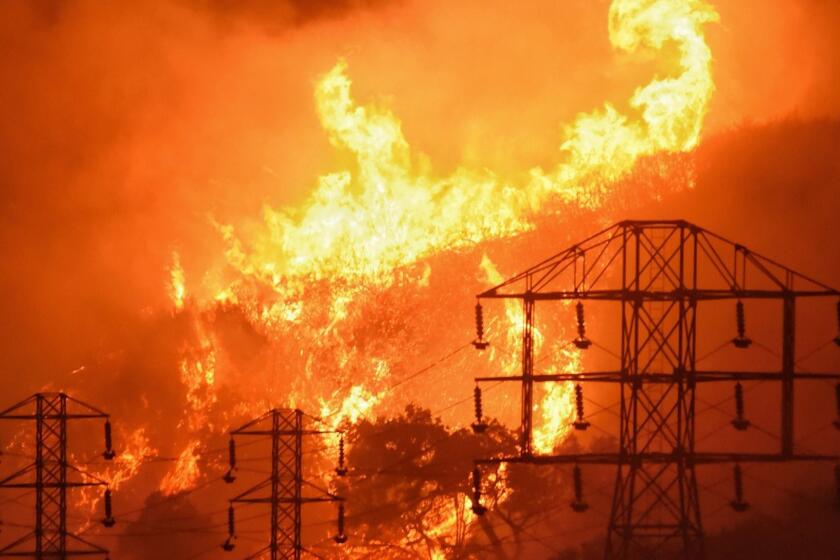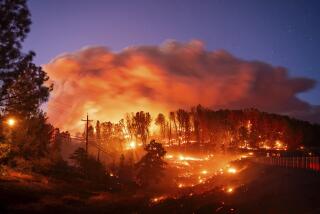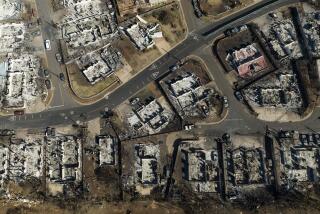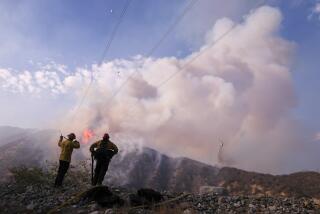Southern California Edison to pay $80 million over deadly 2017 Thomas fire
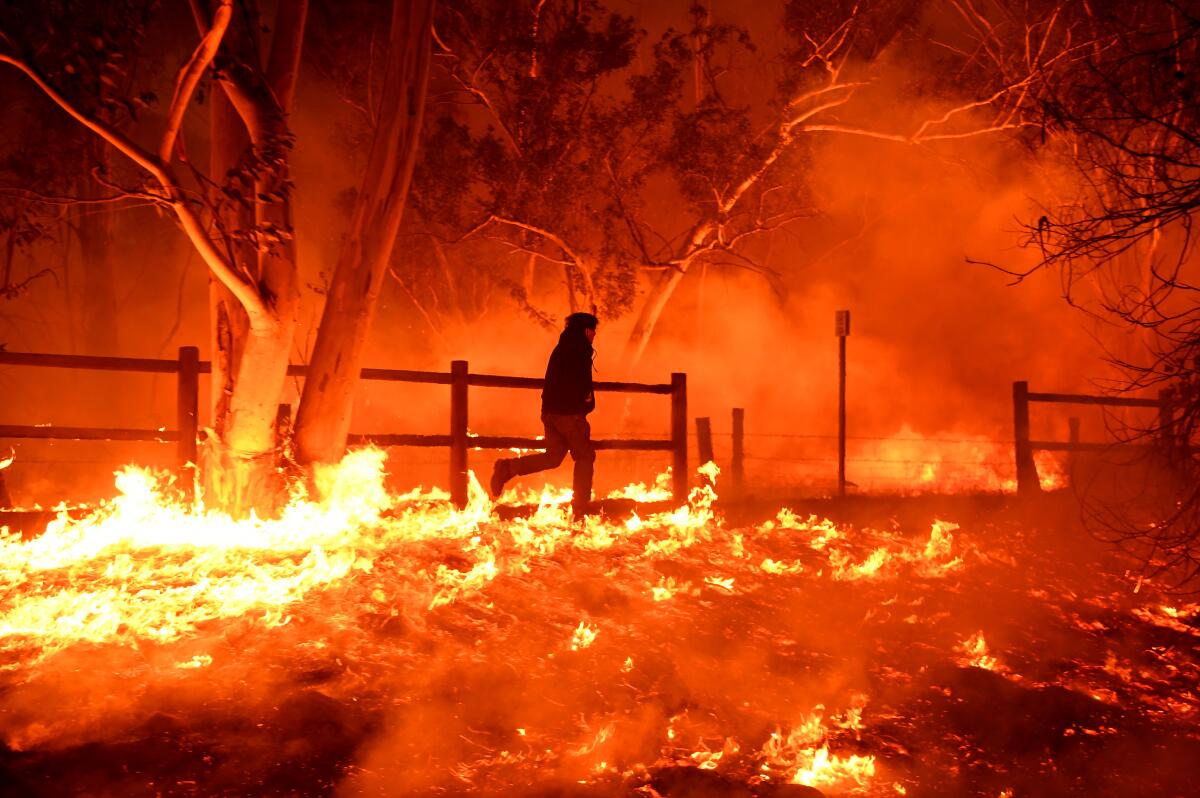
Southern California Edison has agreed to pay $80 million to cover costs and damages from the 2017 Thomas fire, a massive blaze in Ventura and Santa Barbara counties that killed two people and later triggered a massive mudflow that resulted in 23 deaths.
The Thomas fire, which scorched more than 280,000 acres and destroyed more than 1,000 structures, ignited on Dec. 4, 2017, after high winds caused two Southern California Edison power lines to slap together, fire officials found.
Combined with another blaze sparked by the company’s equipment, it became the eighth-largest wildfire in state history, according to the California Department of Forestry and Fire Protection.
The utility agreed, in a settlement finalized Friday afternoon, to pay the federal government to resolve claims on behalf of the U.S. Forest Service, the Justice Department announced Monday. Edison did so without admitting wrongdoing or fault.
In a news release, the Justice Department called it “the largest wildfire cost recovery settlement by the United States in the Central District of California.”
“This record settlement provides significant compensation to taxpayers for the extensive costs of fighting the Thomas fire and for the widespread damage to public lands,” First Assistant U.S. Atty. Joseph T. McNally said.
Gabriela Ornelas, a spokesperson with Edison, called the settlement “a reasonable resolution.”
“We continue to protect our communities from the risk of wildfire with grid hardening, situational awareness and enhanced operational practices,” she said.
The Thomas fire began in two locations on that December evening, according to fire officials. The first ignition point was in Anlauf Canyon and the second was at the top of Koenigstein Road in Ventura County. The two fires joined together and formed the Thomas fire.
In 2020, the federal government filed a lawsuit on behalf of the Forest Service against Edison to recover costs from fighting the fire and for the extensive damage it caused to Los Padres National Forest, the U.S. attorney’s office said in its news release.
The Justice Department alleged that Edison owned, maintained and operated the power lines that caused both ignitions. In Anlauf Canyon, the government alleged that Edison power lines made contact with one another and ignited dry vegetation below. On Koenigstein Road, the federal litigation alleged that an Edison power pole transformer failed and caused an energized power line to fall to the ground, also igniting dry vegetation.
Edison previously acknowledged that its equipment probably started a fire off Koenigstein Road in Santa Paula, but its own investigators concluded that the company was probably not responsible for the second, larger blaze that began in Anlauf Canyon.
Investigators have determined that Southern California Edison power lines ignited the 2017 Thomas fire, a massive blaze in Ventura and Santa Barbara counties that killed two people and later gave rise to a massive mudflow that resulted in at least 21 deaths.
The utility agreed to pay the $80-million settlement within 60 days of the effective date of the agreement, according to the U.S. attorney’s office.
Utility-sparked wildfires in recent years have devastated vast swaths of the state, killing people and destroying small towns in their wake.
The Camp fire of 2018, which investigators said was caused by a failed Pacific Gas & Electric transmission line in the Sierra Nevada foothills, became the deadliest wildfire in California history, destroying the town of Paradise and killing 85 people.
Edison has paid out millions in recent years tied to wildfires. In 2021, the utility agreed to pay $550 million in fines to the California Public Utilities Commission safety and enforcement division for its role in five wildfires.
The agreement included fines and penalties relating to the Thomas, Woolsey, Rye, Meyers and Liberty fires, which collectively burned more than 380,000 acres and destroyed thousands of homes.
Investigators with the commission’s Safety and Enforcement Division determined that Southern California Edison violated state safety regulations, which led to the ignition of the blazes, they said.
More to Read
Sign up for Essential California
The most important California stories and recommendations in your inbox every morning.
You may occasionally receive promotional content from the Los Angeles Times.

